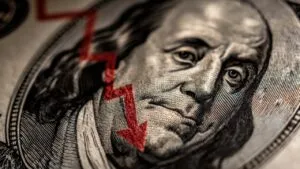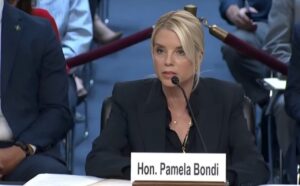Freedom is at the heart of what it means to be American. It’s woven into the fabric of everyday life and shapes the opportunities we cherish. Knowing the core freedoms that form the foundation of our rights is more than just important—it’s empowering.
From the ability to speak your mind to practicing your beliefs without fear, these freedoms define our individuality and community. Let’s take a closer look at what makes them so vital and how they impact our lives.
Table of Contents
Toggle1. Freedom of Speech

One of the bedrocks of American democracy is the ability to voice thoughts without governmental punishment. It empowers criticism of public officials, fosters artistic creativity, and guards against oppressive tactics.
Censorship is limited, though certain forms of extreme speech can lead to legal consequences. Moments in American history showcase how that liberty affects individuals from students to social activists.
Historical Examples
- Tinker v. Des Moines (1969) Students wore black armbands to protest the Vietnam War and were punished by school authorities. The Supreme Court sided with the students, stating that individuals, even in classrooms, have the right to express opinions under the First Amendment.
- Civil Rights Era Rallies Leaders like Dr. Martin Luther King Jr. harnessed public speech to highlight discrimination and rally communities. Speeches given from pulpits and podiums shaped future legislation around voting rights and equal treatment.
Why It Matters
- Fosters new ideas in science, art, and politics.
- Opens channels for peaceful dissent.
- Protects minority voices in national debate.
2. Freedom of Religion
A pluralistic society depends on the liberty to believe or not believe, to worship or abstain from worship, and to do so without pressure from any governing body.
There are two core parts: no official government religion and no restriction on faith-based practices (with exceptions for practices that break general laws).
Early colonists left their homelands to find a place where religion could be personal rather than mandated, and that thread continues through modern times.
Historical Examples
- Engel v. Vitale (1962) A state-directed school prayer was deemed unconstitutional. It clarified that public institutions should refrain from endorsing specific beliefs.
- Wisconsin v. Yoder (1972) Amish families argued that they could withdraw their children from school past eighth grade due to faith-based reasons. The Court agreed, showing that personal convictions can sometimes supersede compulsory attendance laws.
Why It Matters
- Encourages religious harmony and tolerance.
- Minimizes conflicts over sectarian influence.
- Upholds a core principle that spiritual decisions remain personal.
3. Freedom of Assembly
A diverse range of movements—civil rights, anti-war protests, climate marches—demonstrate the potency of gathering to champion a cause. When people gather peacefully, they exercise a foundational liberty.
Public demonstrations promote greater accountability among lawmakers who might otherwise ignore certain grievances.
That freedom also allows individuals to meet in smaller groups for club meetings or civic engagement without fear of arrest.
Historical Examples
- March on Washington (1963) Over a quarter-million participants converged on the Lincoln Memorial, listening to Dr. King’s iconic oration. That moment galvanized support for legislation banning racial discrimination.
- National Socialist Party v. Skokie (1977) A neo-Nazi group planned to march in a predominantly Jewish area. Despite public outrage, the Supreme Court ruled that the First Amendment protected peaceful assembly, even for viewpoints deemed deeply offensive.
Why It Matters
- Provides a platform for grassroots political movements.
- Allows marginalized groups to magnify their voices.
- Reinforces the notion that peaceful protest can yield lasting change.
4. Freedom of the Press

Journalists and editors have a crucial watchdog role, reporting on governmental or corporate wrongdoing. Citizens depend on investigative reporting to see how power is wielded, including budget use, policy-making, and military actions.
This freedom has faced challenges from time to time, yet court rulings generally reinforce that media must remain free to function effectively.
Historical Examples
- New York Times Co. v. United States (1971) Known widely as the Pentagon Papers case. The Supreme Court affirmed that newspapers could publish classified documents about the Vietnam War without punishment, confirming that prior restraint by the government is highly restricted.
- Watergate Scandal (1970s) Journalists Bob Woodward and Carl Bernstein uncovered political crimes that eventually led to President Nixon’s resignation. Their reporting illustrated how press freedom influences democratic outcomes.
Why It Matters
- Encourages accountability by revealing hidden truths.
- Gives residents the facts needed for informed decisions.
- Acts as a safeguard against unchecked power.
5. Freedom from Unreasonable Searches and Seizures

The Fourth Amendment limits government intrusion into private spaces. It compels law enforcement to show probable cause and secure warrants before searching homes, personal documents, or electronic data, barring unique circumstances.
That principle traces back to colonial experiences under British rule, when authorities ransacked homes on flimsy pretexts.
Historical Examples
- Mapp v. Ohio (1961) Evidence seized without a valid warrant could not be used in court. That ruling extended the so-called exclusionary rule to state prosecutions, bolstering privacy rights.
- Katz v. United States (1967) Focused on electronic surveillance. The Supreme Court said that wiretapping requires warrants, ensuring that modern forms of communication receive privacy safeguards too.
Why It Matters
- Gives individuals space free from undue interference.
- Limits overreach by law enforcement.
- Adapts to new technology in evolving times.
6. Right to Due Process

Fairness, transparency, and consistent treatment form the essence of due process. Courts and agencies must provide notice of charges, avenues to defend oneself, and neutral decision-makers.
It prevents arbitrary detentions and ensures that each step in legal proceedings follows established rules. Several key rulings anchor those protections across federal and state levels.
Historical Examples
- Miranda v. Arizona (1966) Officers must inform suspects of rights, including the option to remain silent and request legal counsel. That requirement bolsters the Fifth Amendment guarantee against forced self-incrimination.
- Gideon v. Wainwright (1963) Anyone facing felony charges in state courts must be provided legal counsel if they cannot afford an attorney. The Court recognized that a fair trial hinges on adequate legal representation.
Why It Matters
- Stops wrongful convictions by promoting transparent trials.
- Guarantees balanced treatment, regardless of status or wealth.
- Upholds the rule of law by setting uniform procedures.
7. Right to Equal Protection

Racial segregation, gender discrimination, and other forms of unequal treatment have eroded civil rights throughout U.S. history.
The Fourteenth Amendment’s Equal Protection Clause aims to correct that by prohibiting governments from singling out groups arbitrarily.
Major Supreme Court decisions have paved the way for school desegregation, marriage equality, and broader anti-discrimination policies.
Historical Examples
- Brown v. Board of Education (1954) Public school segregation was deemed unconstitutional. Thurgood Marshall’s arguments showcased the damage inflicted upon Black children in segregated settings, prompting an end to so-called “separate but equal.”
- Obergefell v. Hodges (2015) Recognized same-sex marriage as a constitutional right. Couples gained the same legal standing and benefits historically granted only to opposite-sex partners.
Why It Matters
- Fosters a society that treats every person fairly.
- Prompts legal reforms targeting bigotry.
- Promotes civic unity by championing inclusivity.
8. Freedom from Want
Franklin D. Roosevelt spoke about four key freedoms during World War II, including this one that points to economic stability. It reflects an aim to reduce poverty and create conditions where no one must choose between food and shelter.
While not explicitly in the Constitution, it has shaped conversations around public programs designed for human welfare.
Historical Examples
- Social Security Act (1935) Part of the New Deal effort to offer a safety net for retirees, the jobless, and dependent children. It illustrated the idea that government could help residents meet basic needs.
- Affordable Care Act (2010) Expanded healthcare coverage to millions. Individuals across income brackets gained greater access to medical services, easing the financial burdens of serious illness.
Why It Matters
- Reaffirms an ethic of care for vulnerable populations.
- Sets benchmarks for addressing issues like hunger and homelessness.
- Inspires continued debate on the government’s role in public welfare.
9. Freedom from Fear

Roosevelt’s call for a global vision included an aspiration that nations reduce the threat of war, domestic violence, and tyranny.
The United States joined with other countries to champion peace through various treaties and collaborative organizations.
That concept resonates at home, where major policies address security threats, mass violence, and crime prevention.
Historical Examples
- United Nations Charter (1945) The U.S. joined forces with allied powers to form a global body aimed at preventing catastrophic warfare. That multinational effort matched Roosevelt’s principle of fostering security on a worldwide scale.
- Strategic Arms Reduction Treaties (1991) Agreements with Russia to cut back nuclear arsenals. Leaders reasoned that fewer weapons of mass destruction would lessen the prospect of global catastrophe.
Why It Matters
- Promotes a national and global environment free from oppressive forces.
- Encourages diplomatic solutions to conflict.
- Shapes military and foreign policy decisions.
10. Freedom to Vote

No single right animates American self-governance more vividly than the right to cast a ballot.
The Constitution’s Fifteenth, Nineteenth, and Twenty-Sixth Amendments—along with supporting legislation—extend suffrage across race, gender, and age groups.
Civic engagement depends heavily on that freedom, since it places power directly in citizens’ hands.
Historical Examples
- Voting Rights Act (1965) Barriers like literacy tests and poll taxes were outlawed to protect minority voters. That legislation resulted in a surge of new voter registrations and representation in elected offices.
- Bush v. Gore (2000) Controversies surrounding vote recounts in Florida ended up in the Supreme Court, which demonstrated how pivotal every ballot can be in a razor-thin election.
Why It Matters
- Gives the public meaningful influence in shaping government.
- Guards against tyranny by facilitating the peaceful transfer of power.
- Empowers citizens from all walks of life to champion their visions for society.
Interplay of Freedoms
Every liberty covered here contributes to the broader sense of American life. A free press highlights injustices, prompting public demonstrations that address government actions.
Religious inclusion intersects with free speech when faith-based activists petition for policy changes. Equal protection works in tandem with due process to guarantee that no one faces biased policing or legal outcomes.
Though those freedoms seem separate at a glance, they thrive collectively and reinforce one another. Advocates and scholars frequently mention the need for vigilance.
Judicial rulings can shift interpretations, requiring a watchful public ready to speak up when official policies threaten core protections.
Grassroots campaigns, nonprofit legal aid, and everyday civic engagement operate as guardians of liberties that have matured over generations.
Citizens stand as key players in preserving that balance, which is why voting becomes so critical. It all revolves around a culture that values civic participation.
Final Words
Foundational freedoms in the United States form a guiding light for anyone seeking an equitable society. They give rise to conversations about fairness, personal agency, and collective well-being.
They also represent timeless cornerstones that serve as reminders of aspirations set in motion by visionaries of the past. The promise remains vibrant, inviting each individual to join in safeguarding those fundamental elements for future generations.
Related Posts:
- Safest Countries in the World in 2025 - GPI…
- Democracy Index 2025: Global Rankings That Show…
- The Hidden Boundaries of Free Speech in Modern Democracies
- 26 Most Dangerous Cities in US - Updated Statistics for 2025
- Capital Cities in Europe: Top Destinations For You…
- Top 11 Civil Rights Organisations Promoting Equality








